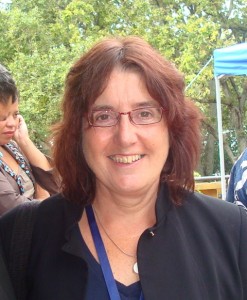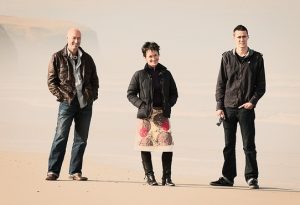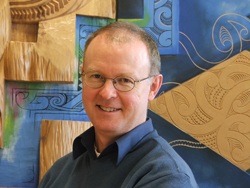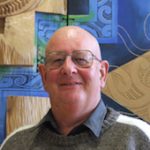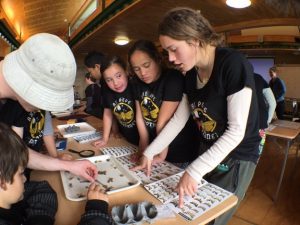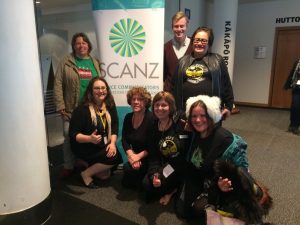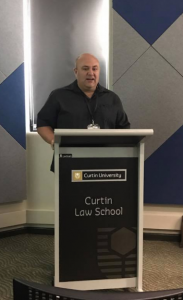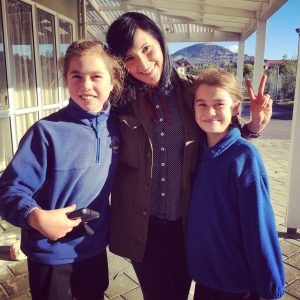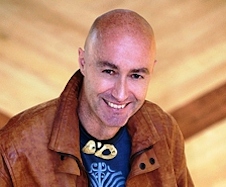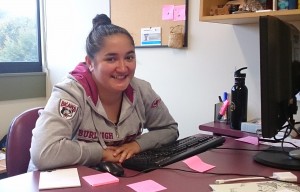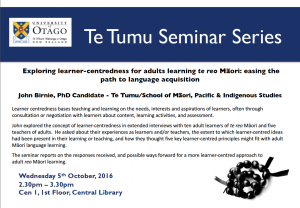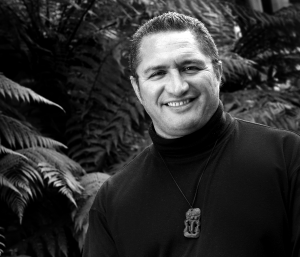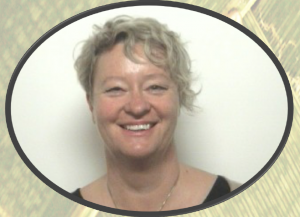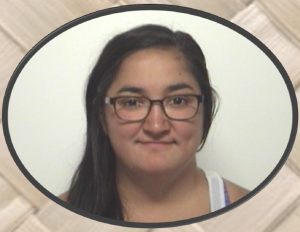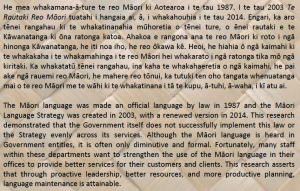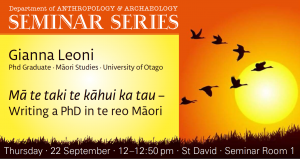Rangahau Roundup
Semester 2 has been busy on the research front for Te Tumu staff and postgrads.
Te Tumu is still progressing with Te Kōparapara, a book on Māori culture, history and contemporary society, which is designed as a textbook for MAOR102 as well as for a general audience. Prof Michael Reilly is the main driver of this project, and has been ably assisted by Dr Gianna Leoni. This book, with an array of essays mainly written by Te Tumu staff, is under contract with Auckland University Press and should appear sometime in 2017.
Faculty News
Associate Prof Jenny Bryant-Tokalau has been having a busy Research and Study Leave. She has given two presentations in the USA in the last semester: ‘Food security and other risks in a time of climate change: traditional and contemporary forms of resilience’, to the Department of Anthropology, and ‘Small Island Pacific States: Dealing with Climate Change’ to the Department of Geology at Wheaton College in Massachusetts. In December she presented ‘Working in Context: The Commercial Potential of Customary Pacific Land’ at the Aotearoa New Zealand International Development Studies Network Ninth Biennial Conference ‘Pacific Currents, Global Tides’ Wellington, and ‘Dealing with disasters and social change’ to the Asia Pacific Biocultural Health ‘Big Ideas’ Workshop, in Dunedin, December.
Jenny has also had one chapter in an edited collection appear during this period: ‘Community responses to floods in Fiji: lessons learned’ In Calabrese, John (ed.) Humanitarian Assistance and Disaster Response: Rising to the Challenge. MAP Series, Middle East Institute, Washington. August (2016) issue. Click here to access it. She also has two book reviews published in New Zealand and Pacific Studies November, 2016; and Journal of the Polynesian Society 125 (1), 2016.
Jenny is planning to return to the Solomon Islands to carry out in-depth interviews on small and medium businesses on Kastom land, as well as to finalise book edits for Palgrave MacMillan Anthropology of Disaster Series: What the Pacific Islands can teach New Zealand about Climate Change.
As previous posted, Prof Paul Tapsell spoke at the Indigenous Plenary at the WAC-8 Conference in September. Paul and Associate Prof Merata Kawharu are also part of the large three-year Mauri-Whenua-Ora project within the National Science Challenge Land and Water: Toitū te Whenua, Toiora te Wai. This project is the only fully Māori-led and Māori-integrated research programmes of all NSCs nationally, and is looking at Maori land and water based innovation including: (1) micro economy development “Pa to Plate”, (2) Shared iwi innovation for Taitokerau as a model for other iwi and (3) a regional (Te Hiku) study looking at Maori land suitable use and value chains. Merata also has a forthcoming publication, “Indigenous Entrepreneurship: Cultural Coding and the Transformation of Ngāti Whātua in New Zealand” in the Journal of the Polynesian Society, 125, 4 (2016): 385-408.
Associate Prof Lachy Paterson gave a presentation entitled ‘U.S. Slave “Humor” in New Zealand Newspapers’ at the 109th Annual Meeting of the Pacific Coast Branch of the American Historical Association at Waikoloa, Hawai’i. He is currently writing up this paper, which looked at how imported racist discourses permeated New Zealand’s English-language newspapers. Lachy returned to his ongoing obsession with Māori-language newspapers, with “The New Zealand Government’s Niupepa and their Demise” published in the New Zealand Journal of History, 50, 2 (2016): 44-67.
Together with Associate Prof Angela Wanhalla (Dept of History and Art History), he has also sent off their manuscript “He Reo Wahine: Māori Women’s Voices from the Nineteenth Century” to Auckland University Press, and it should appear sometime in 2017.
Over summer Prof Michael Reilly hopes to write a paper concerning the research relationship between William Wyatt Gill of the London Missionary Society, and Mamae of Ngāti Vara, a church minister, on Mangaia during the 19th century. In the longer run, he wants to begin writing chapters for an introduction to Māori tribal history, drawing from the draft text used as a ‘course reader’ in MAOR 207 Ngā Kōrero Nehe – Tribal Histories. Michael is passionate about this project but acknowledges that it may take several years to finish. He has also completed the final editorial corrections for a paper to be published this December, “Narrative Features and Cultural Motifs in a Cautionary Tradition from Mangaia (Cook Islands)”, in the Journal of the Polynesian Society 125, 4 (2016): 357-384.
Dr Jim Williams has a forthcoming article in the Journal of the Polynesian Society, entitled “Seafood Gardens”. Jim has a busy summer planned, fininishing off an essay for Ethnohistory, entitled “Layers of History” explaining how certain activities are repeated at powerful places, giving rise to notions of circularity of time, but layered, like whakapapa; he will also be giving a presentation in January at the American Historical Association conference in Denver. One of Jim’s students, Katrina Bryant, has just completed her Master of Physiotherapy.
In October newly graduated Dr Gianna Leoni gained a new position based in Te Tumu, that of a Ngā Pae o te Māramatanga postdoctoral fellow, with the research project “Te Ōhanga o te Pīpīwharauroa – Expressing our Economic Aspirations”. Click here for more details.
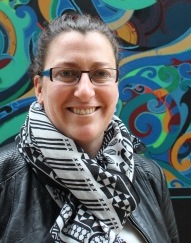 In June, Megan Pōtiki presented on her doctoral research on language loss at Ōtākou, at He Rau Tumu Kōrero IX at Te Rau Aroha Marae in Bluff. This event was run by Te Pouhere Kōrero, the national Māori historians organisation. Megan has also published two journal articles, “The Otago Peninsula: A unique identity” in Shima, 10, 1 (2016): 67-84 [Potiki-Shima-v10n1-3]; and ‘Te Haka Nā Ngā Herehere’ in Te Pouhere Kōrero 8 (2016): 6 –25, and is currently working on another article, “Māori song composition and reclamation of traditional tribal borders” based on a mōteatea she composed for the Te Tumu Kapa Haka group.
In June, Megan Pōtiki presented on her doctoral research on language loss at Ōtākou, at He Rau Tumu Kōrero IX at Te Rau Aroha Marae in Bluff. This event was run by Te Pouhere Kōrero, the national Māori historians organisation. Megan has also published two journal articles, “The Otago Peninsula: A unique identity” in Shima, 10, 1 (2016): 67-84 [Potiki-Shima-v10n1-3]; and ‘Te Haka Nā Ngā Herehere’ in Te Pouhere Kōrero 8 (2016): 6 –25, and is currently working on another article, “Māori song composition and reclamation of traditional tribal borders” based on a mōteatea she composed for the Te Tumu Kapa Haka group.
As part of Māori language week this year Tangiwai Rewi was asked to give a Library research floor talk on Wednesday 13 July on the Ngāruawāhia Turangawaewae regatta, which comes out of her doctoral research and an article last year in the Journal of the Polynesian Society. A display themed around the article was shown in the Hocken Collections for seven weeks as part of Māori language Week. Click here for more details and pictures.
Tangiwai has participated in the Ahi Pepe Resource launch 27 October and Wānanga 26-28 October. She was a collaborator in this project which created an immersion te reo Māori Moths resource depicting the 600+ species endemic to the South Island. Twelve schools were invited to the Wānanga, to participate, learn how to trap, kill and present moths for identification and preservation. Also launched that night were the bilingual and total immersion resource covering the four areas of the South Island.
Tangiwai also attended the SCANZ (Science Communicators Association NZ) conference on 14 November as part of the panel who discussed the resource and preservation of moths.
Tangiwai went north to attend the Te Awamārahi poukai on 24 November. (Poukai are ceremonial gatherings held on Kīngitanga marae.) This was an opportunity to take the photo display back to her marae especially as some of people featured in the photos come from that marae. The photo boards were put on display along with other harakeke resources found along the riverbanks. Needless to say, Tangiwai also vigorously promoted Te Tumu and the University of Otago to all the people who came to view the display.
Postgraduate News
Congratulations to Matangi Schaaf who graduates in December with a PhD; and also to Nikki Walden (Taranaki, Te Āti Awa) and Nurul Sultan with Master of Indigenous Studies degrees. Click here for more details.
Two of our PhD students are submitting in December: John Birnie and Taomi Qiliho-Tapu, and Tāwini White (Ngāi Tahu, Te Rarawa) is making the final amendments to her MA thesis. Rieko Hayakawa‘s PhD thesis ‘Possibility of Telecommunication Universal Service in the Pacific Islands; Case studies of Vanuatu, PEACESAT and USPNet’ has just passed examination. We look forward to these students graduating in the near future.
We have a new PhD student who has just started, Raaniera Te Whata (Ngāpuhi, Ngāti Porou, te Whānau a Apanui), researching communities-based Māori land development in the Bay of Islands. Raaniera comes into doctoral studies after completing an LLB in Auckland and a Master of Indigenous Studies in Te Tumu.
In August Erica Newman who is undertaking PhD research on Fijian Orphanages (1874-1970) presented at the Anthropology and Archaeology Postgraduate Symposium held here in Dunedin.
Matiu Payne (Ngāi Tahu, Ngāti Mutunga), who is researching the impact of government agencies on tikanga whāngai for his doctoral studies, has just been to the Australia New Zealand Law and History Society conference at Curtin University in Perth presenting on his PhD research.
Kelli Te Maihāroa (Waitaha) who is researching Māori peace traditions and their relevance to whānau today, has co-edited an edited collection: H. Devere, K. Te Maihāroa, & J.P. Synott (eds.) Peacebuilding and the Rights of Indigenous Peoples: Experiences and Strategies for the 21st Century, (Springer: Cham, Switzerland, 2016), which includes two co-written and one sole-authored articles by Kelli. She also has an article forthcoming, “Whanaungatanga: Relationships in a One Day Te Reo Māori School of Excellence” in Theobald, M. (Ed.) Friendships in Multilingual Settings (Sociological Studies of Children and Youth, Vol 21 (2016)). Emerald. Kelli, who is a lecturer in the College of Education, also presented at the Teacher Education Forum of Aotearoa New Zealand, in June/July in Dunedin, and at International Indigenous Research Conference in November in Auckland.
University of Winnipeg student’s blogpost on Otago
Dunedin might be at the “bottom of the world” but we still have people prepared to make their way down here. One such person was Anna Huard, a second-year student in the University of Winnipeg’s MDP (Master’s in Development Practice) programme. While here Anna spent time at Te Kura Kaupapa Māori o Ōtepoti, and with people from Te Tumu. Click here to read about her experiences at Otago from the “University of Winnipeg’s MDP students blogging from the field” site.
Paul Tapsell – Speaking at WAC8 Indigenous Plenary
Te Tumu’s Professor Paul Tapsell spoke at the Indigenous Plenary at the huge Eighth World Archaeological Congress held in Kyoto, 28 August-2 September. He gave a Māori perspective on “Being Pre-Indigenous” at what was a larger discussion of archaeology, history, and heritage by indigenous people from around the globe. The talk (c.16 minutes) is now available on Youtube. Check it out. Paul teaches into Te Tumu’s Indigenous Development programme.
Kei te piki tonu a Gianna! Further success for Gianna!
I te tau nei, ka whakapōtaetia a Gianna Leoni mō tāna tohu kairangi. I tēnei tau hoki, kua mahi ia hei kairangahau, hei pūkenga mō Te Tumu, engari, kua riro i a ia he tūranga hou, hei kairangahau postdoc i raro i a Ngā Pae o te Māramatanga. Ko tāna kaupapa rangahau, ko “Te Ōhanga o te Pīpīwharauroa – Expressing our Economic Aspirations”.
This year, Gianna Leoni graduated with her PhD. Also this year she has been working as a researcher and lecturer for Te Tumu, but she has gained a new position, that of a Ngā Pae o te Māramatanga postdoctoral fellow. Her research project is “Te Ōhanga o te Pīpīwharauroa – Expressing our Economic Aspirations”.
“The aim of this research is to enhance the contemporary Māori language of economic development that reflects a kaupapa Māori way of doing business. It will include historical research of language use regarding economic activity and an examination of current language use in economic activities, [including case studies] with the main objective of reintroducing and/or developing appropriate language that expresses economic activity.
“This research will allow for kaupapa Māori values to be included in Māori businesses using vocabulary that has a whakaaro Māori, not just transliterations, and that encompasses the philosophy of trading in a Māori way. In order to truly align with kaupapa Māori values, and to get buy-in from the community, economic activity needs the opportunity to be expressed in te reo Māori in all areas (eg. Finance) that are relevant to the stakeholders.
“This research will also contribute to the revitalisation and maintenance of te reo Māori and is extremely significant as Māori reach the ‘post-settlement’ era of Treaty of Waitangi negotiations where there is an increasing amount of economic engagement by Māori organisations.
“This research project links to the theme Whai Rawa. It aims to contribute towards developing tools, theories and models that will add value and profitability to diverse Māori enterprises, businesses & communities. It will contribute to creating new understandings and approaches for effective governance of these entities.
“This project will also link to a previously established Whai Rawa project, The intergenerational reality for Māori Small and Medium sized Enterprises (SME): Building resilience of Māori SMEs for the future. The exploration of Māori language as an expression of economic aspiration establishes a critical bridge to understanding the intergenerational reality of Māori SMEs today, and in the future”
Ka pai, Gianna!
Te Tumu Seminar
Me pēhea rā e ngāwari ai te ako reo Māori mō ngā pakeke? How can we make it easier for adults to learn te reo Māori? Come and listen to John Birnie talk about his doctoral research.
He rongo
Aroha mai! A belated roundup of Te Tumu research news.
In July we were treated to Poia Rewi’s Inaugural Professorial Lecture, held to celebrate his ascension to this tūranga rangatira within the university. The title of his talk was “Hoka : Motivators of Time”, a tour alongside Poia as he recounted his own academic journey, and his ZePA model of developing positivity around the use of te reo Māori. This was well attended by Poia’s whānau, staff and students, as well as many from the community, and was capped off with haka, waiata and karakia. The lecture can now be viewed on ITunes U.
In July Te Tumu were privileged to host Professor Michael Harkin as a William Evans Fellow. Professor Harkin, a cultural anthropologist and inaugural editor of Ethnohistory, gave several talks: a public lecture “The Trump at the End of the World: Monsters and Marvels in our Parlous Age”, in which he brought his knowledge of societies past and present together, and a departmental seminar, “‘The Emotional Archive’: The case of Residential Schools in Canada”, in which he examined ‘the relative lack of negative narratives [he] elicited…during fieldwork in British Columbia in the 1980s–2000s’, while also exploring ‘various forms of social memory, proposing the notion of an “emotional archive” that contains non-narrative memory traces’.
It is always great when our students gain their postgraduate degrees, after months or years of working on, and writing up their research. We had three such students graduating this August: Sandra Spence (Pākehā) and Raaniera Te Whata (Ngāpuhi, Ngāti Porou, Te Whānau a Apanui, Airihi) with the Master of Indigenous Studies, and Gianna Leoni (Ngāti Kurī, Ngāti Takoto, Itariana) with a PhD.
Dr Lyn Carter supervised Sandra, whose research was on “Kāi Tahu Chinese Unions and Identity in Otago and Southland/Murihiku”; Associate Professor Merata Kāwharu supervised Rāniera (“Tautoro, tū te ao, tū te pō (The endurance of Tautoro heritage): Investigating challenges and opportunities”); Professor Poia Rewi and Associate Professor Lachy Paterson supervised Gianna (“Mā te Taki te Kāhui Ka Tau: Te Waiaro ki te Reo Māori i ngā Hinonga Kāwanatanga”) who wrote her thesis in te reo Māori. Gianna is teaching MAOR312: Te Māhuri 2 this semster.
He kauhau
Te Tumu’s newest PhD graduate will be presenting a seminar to the Department of Anthropology and Archaeology this Thursday, 12pm. Ko te kaupapa te tuhi i tāna tuhinga kairangi i roto i te reo Māori; on writing a thesis in Māori. Koia kei a koe, Gianna.
Waitangi Evidence by Associate Professor Merata Kawharu
People sometimes wonder what “value” academic work may have, particularly with regard to Humanities research. We are lucky to have Associate Professor Merata Kawharu of the University of Otago’s Research and Enterprise Office as an adjunct Research Professor in Te Tumu. Merata’s achievements that benefit Māori are many. Her latest work has been working on behalf of her own people, Ngāti Rahiri and Ngāti Kawa of the Bay of Islands, preparing evidence on early Māori-Pākehā interactions, with particular relevance to land, and presenting it from a cultural and hapū perspective. As she states “This kōrero today serves not to repeat what historians have already covered. Instead, I take a different perspective, centralising arguments from a cultural values and community-centric orientation so that the extent of significant loss can start to be more fully appreciated.” Click here to read Merata’s Summary Brief of Evidence.
The Otago Peninsula: A Unique Identity
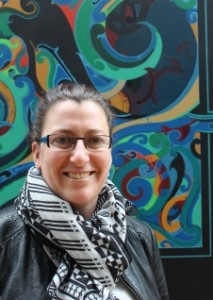 It’s wonderful to see Te Tumu’s emerging scholars getting their research out to the world. Megan Pōtiki, one of our teaching staff and also undertaking doctoral studies, has just published an article on the Otago Peninsula in Shima: The International Journal of Research on Island Cultures. The full text of the article can be accessed here.
It’s wonderful to see Te Tumu’s emerging scholars getting their research out to the world. Megan Pōtiki, one of our teaching staff and also undertaking doctoral studies, has just published an article on the Otago Peninsula in Shima: The International Journal of Research on Island Cultures. The full text of the article can be accessed here.
Ka taea te kī mō tēnei tuhinga, “Mō tātou, ā, mō kā uri, ā, muri ake nei”.
The Otago Peninsula: A Unique Identity
ABSTRACT: The Otago Peninsula on the South Island of New Zealand has a long indigenous Māori history that is rooted in the land and the people of the area. The stories and genealogy that connect Māori New Zealanders to the Otago Peninsula are well documented and retold. After European contact with and connection to the Peninsula was initiated the colonisation of the area occurred rapidly. The Otago Peninsula historically, and to the present day, has always had a separate chartacter to that of the adjascent mainland (around the city of Dunedin). Despite the short distance between them, the culture of the Otago Peninsula remains distinct to that of the mainland as if it were an island.
Congratulations to Nathan Matthews
He mihi nunui ki a Nathan Matthews, e piki haere ana ki te ara mātauranga. Congratulations to Nathan Matthews in his new role at Te Whare Wānanga o Awananuiārangi. Nathan completed his undergraduate and postgraduate studies in Māori Studies in Te Tumu, completing his PhD in 2006. He also taught te reo Māori and Māori performing arts in Te Tumu for a number of years. In 2009 Nathan moved to Massey University to take up the role of Māori doctoral studies coordinator, later shifting to Whangārei as the founding principal of Te Kura Hourua O Whangarei Terenga Paraoa, a partnership secondary school. It’s great to hear that our former colleague and alumni of Te Tumu is heading back to the tertiary sector as Head of the School of Indigenous Graduate Studies at Te Whare Wānanga o Awanuiārangi.

